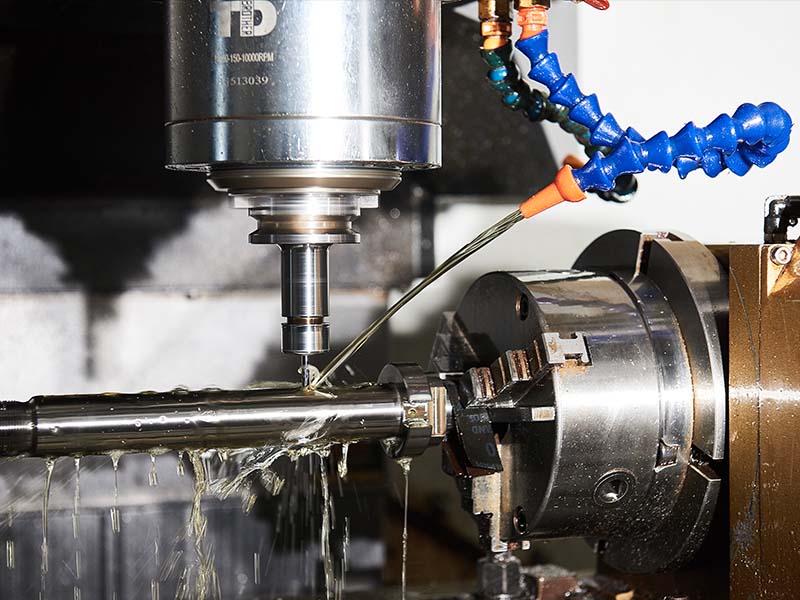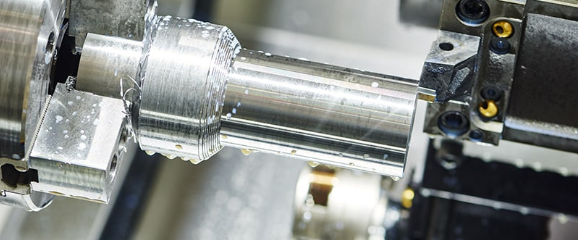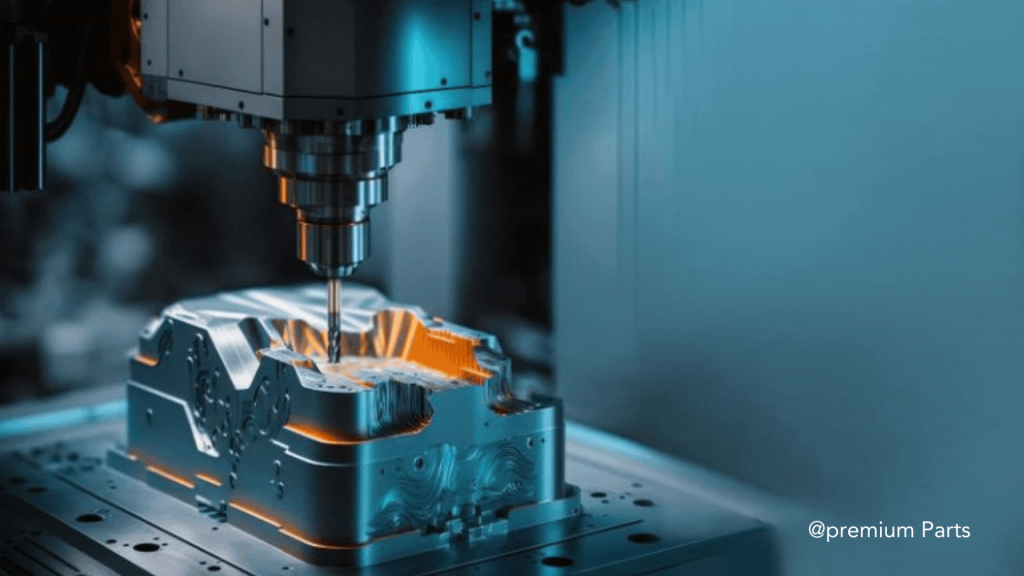The manufacturing sector looks enormous and enriched in the current era. The new trends in CNC (Computer Numerical Control) machining are key drivers of innovating manufacturing settings. These advanced technologies define new approaches to considering, designing, and manufacturing products. It dominates the current trends in industrial manufacturing processes in terms of speed, accuracy, and adaptability.
In moving to a digital manufacturing model driven by Industry 4.0 technologies like IoT, AI, and smart automation, CNC machining is at the leading edge. These technological advances can benefit both manufacturers and consumers. They offer a fresh start for development and help create more efficient production cycles.
Impact of Industry 4.0 on Modern Machine Shops
Industry 4.0 is redesigning the conventional machine shop setting by the integration of intelligent solutions. It greatly improves output rate, effectiveness, and manufacturing standards. The essence of such change is the integration where several related systems are integrated as machines, sensors, and operators. The foundation is based on the constant data streams collected at different points within the production process. Then, it’s analyzed to identify waste, improve workflow, and prevent any production interruptions.
One of the most revolutionary enhancements is predictive maintenance. It’s usually powered by big data and machine learning to predict when a machine is likely to fail. This lets manufacturers plan for the maintenance of equipment ahead of time. Therefore avoid replacements or repairs, and reduce the time taken to repair the equipment.
The benefits are twofold: reduced operating expenses and greater availability, both of which are critical for achieving superior profitability in a growingly saturated international environment. In the future, as the technologies advance, machine shops will experience more decentralization and more dynamic production options with little or no supervision from operators.
Machine Learning: Revolutionizing CNC Operations for Higher and Accurate Production
Machine learning allows CNC machining unprecedented levels of accuracy and speed. Because manufacturers can control tool paths with more convenience. In addition, they can fine-tune their machining parameters, as well as self-learn and improve from past performance and real-time feedback. These algorithms can learn from prior production cycles, make analysis, and then suggest settings that shall have been most helpful in cutting down on material usage, and final product quality.
Further to it, machine learning allows CNC systems to operate independently in response to certain changes in the production environment. For instance, if a machine predicts the material being used is different or if the conditions of the operating environment change in the middle of the process, then the machining parameters can be adjusted by machine learning algorithms to produce a product as the required standard. So, it not only maximizes the productivity of production processes but also increases the reproducibility of production outcomes and customization solutions.
Transforming CNC Machining with Digital Technology
Another emerging trend in the CNC machining industry 4.0 is the digitalization of CNC systems. Using digital twins, engineers can develop exact configurations of their CNC machines and the entire production line. So, it makes monitoring, simulating, and process analyzing get early signals of a problem, and rectify it before it happens on the shop floor.
The trend toward digitization has also brought considerable advances in the data collection. Gathering real-time data right from CNC machines and storing it in central databases can be used to track the machine’s performance and production characteristics. In addition, the data availability for manufacturers can further be more strategic and efficient in their production lines. Therefore, CNC machining is gradually becoming more adaptable to the competitiveness, and continuously fluctuating market.

How CNC Machining Bridging The Gap Between Prototyping & Mass Production
CNC machining is crucial for turning prototypes into mass production. Design Engineers and cnc milling services manufacturer are in a position to easily develop near-perfect models and produce mass-scale volumes in a short turnaround. The machine’s versatility allows prototypes to be easily adjusted for large-scale production while maintaining quality.
For instance, in prototyping, CNC machines can check, and iterate designs quickly, thus saving time in development. Once the design is finalized, the same equipment can be used for production, making both stages compatible. Furthermore, there are no more expensive retooling processes or setting up for the production of different CAD models.
CNC Machining’s Role in R&D
CNC machining is revolutionizing R&D; making products faster. Thanks to modern technologies engineers can easily turn digital designs into reliable end-use parts or products. It helps to achieve faster testing, feedback, and design enhancements. You can detect early flaws before commencing mass production runs.
CNC machines can precisely shape intricate products to high dimensional accuracy. They can be used with a wide range of materials, ranging from metal to plastics. Specifically, the engineers can use the settings to tweak prototypes to their required values. This flexibility lets engineers quickly adjust designs as needed.
During prototyping, engineers mirror the manufacturing process to identify issues to do with scalability, cost, and efficiency. This reduces the risk compared to reactive design which delays the design process until effective solutions for going to market at full scale have been identified. CNC machining thus enhances both the quality of the final product, as well as the product development period.
Revolutionizing CNC Machining: Smart Factories in 2024
As for 2024, CNC machining is rapidly progressing, mainly due to the incorporation of Industry 4.0 solutions and the emergence of smart factories. The change is at the center of IoT, AI analytics, machine learning, and big data technologies. These innovations allow constant monitoring, prognosis of machine failures, and decisions making complement traditional CNC systems. Smart factories help cnc machining parts manufacturer increase efficiency, reduce costs, and boost productivity in industries like aerospace, automotive, and electronics.

These smart factories are leaps and bound changes compared to the traditional manufacturing and assembly line. Thanks to the integration of intelligent production environments, it became possible to realize a higher degree of customization, as well as increased production efficiency and flexibility. IoT sensors in CNC machines allow the machines themselves to communicate, and centralized control systems, as well as data gathering and analysis, predict problems, improve machine problems, and decrease the occurrences of costly downtime.
Media Contact
Company Name: Premium Parts Manufacturing Co., Ltd.
Email: Send Email
Address:Room 2008C, Block B, Zhongshen Garden, No. 20210, Caitian Rd, Fushan Community
City: Shenzhen
State: Guangdong
Country: China
Website: https://www.premiumparts.com/

 (
(